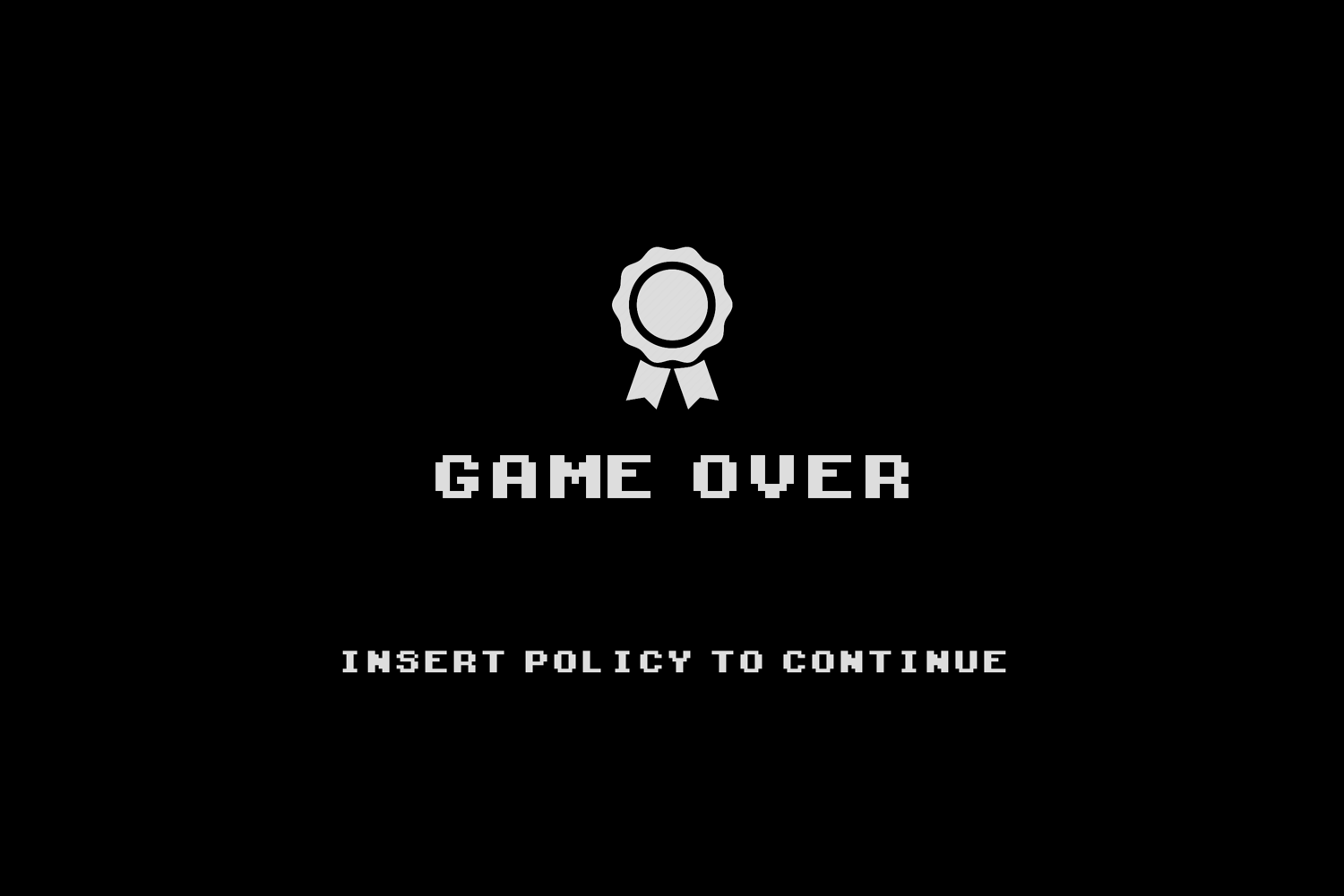Insert policy to continue
Doesn't anybody around here understand the necessary hashtags?
26 May 2017

This year’s General Election is nearly here, and the three main party manifestos are out. The original plan for this post was to review the digital and technology policy highlights, but it turns out we can get that done without breaking a sweat:
- Everyone loves broadband (depending on who you vote for you can look forward to either “gigaspeed”, “hyperfast” or “ultrafast”)
- Theresa May wants to best China, North Korea and Iran by making the UK the “global leader in the regulation of the internet” (read more from Paul Bernal, Cory Doctorow and Buzzfeed if you can stomach it)
- We might do some stuff for startups, but we don’t really know what that means.
Far more striking - especially for a set of manifestos variously hailed as “fit for the 21st century” and “not just for the next five years, but beyond” - was how little of substance they have to offer on the massive shifts that technology is driving in our daily lives and the world around us.
So on the offchance that a candidate knocks on your door and wants to talk about the future, here are three big things you should ask for their views on.
1. Advances in automation and artificial intelligence
Henry Ford installed the first moving assembly line in 1913. A century later, it’s not just industrial jobs that are being automated - recent advances in artificial intelligence and machine learning mean many service industries, knowledge and professional functions are heading the same way, and faster than you realise.
- How will this profound shift in the nature of work and the workplace affect our education, welfare, labour market and industrial strategies?
- What sorts of responsibilities does society have to people whose jobs are displaced by new technologies, and what preparations do we need to start making for them?
- How can government departments and agencies make meaningful use of these technologies to accelerate and improve their administrative functions?
- What more should we be doing to ensure cutting-edge AI development is safe and ethical, and to contain the existential risk from artificial superintelligence?
2. New digital platforms and marketplaces
Disruptive digital platforms are unlocking massive gains in efficiency, and new sources of value for consumers, by creating and clearing new markets in everything from transportation and accommodation to consumer goods and financial services. The ability of these platforms to leverage data and coordinate millions of participants means many of tomorrow’s markets won’t look at all like today’s.
- What investments or regulatory reforms can we make to expand the availability and accessibility of digital platforms, so that they benefit everyone in society?
- Before we build costly new physical infrastructure, how can we achieve much higher utilisation and lower environmental impact from what we’ve already got?
- What lessons from digital platforms and two-sided / peer-to-peer marketplaces can we bring to bear on public service design and delivery?
- What opportunities are there to strike creative partnerships with platform operators, in order to meet public policy objectives with higher satisfaction and lower cost?
3. A public sphere that is predominantly online
Our access to information and conversation is unparalleled in human history. But faced with the overwhelming possibilities and complexity of the modern world, we’re narrowing our horizons and losing faith in our institutions. This threatens not just the government of the day but the survival of liberal democracy itself.
- How can we open up Parliament and our other great democratic institutions, and create a more meaningful connection between them and the people they serve?
- How can we help people to gain visibility over how their view of the world is being filtered, and to critically assess the information and opinions they encounter online?
- How can we make better use of digital tools and platforms to raise the quality of public discourse and counter the destructive populism of the online echo chamber?
- How can we equip our politicians, journalists and other public figures with a solid understanding of the modern world, so that they can live up to the challenge?
I’m not saying any of these questions have easy answers. But if you really want to build a programme for government that’s fit for the future, then it’s imperative to at least try to get your head around them. I’m sure there are prospective MPs out there who recognise this - so if it’s your door they knock on, you should think about giving them your vote.